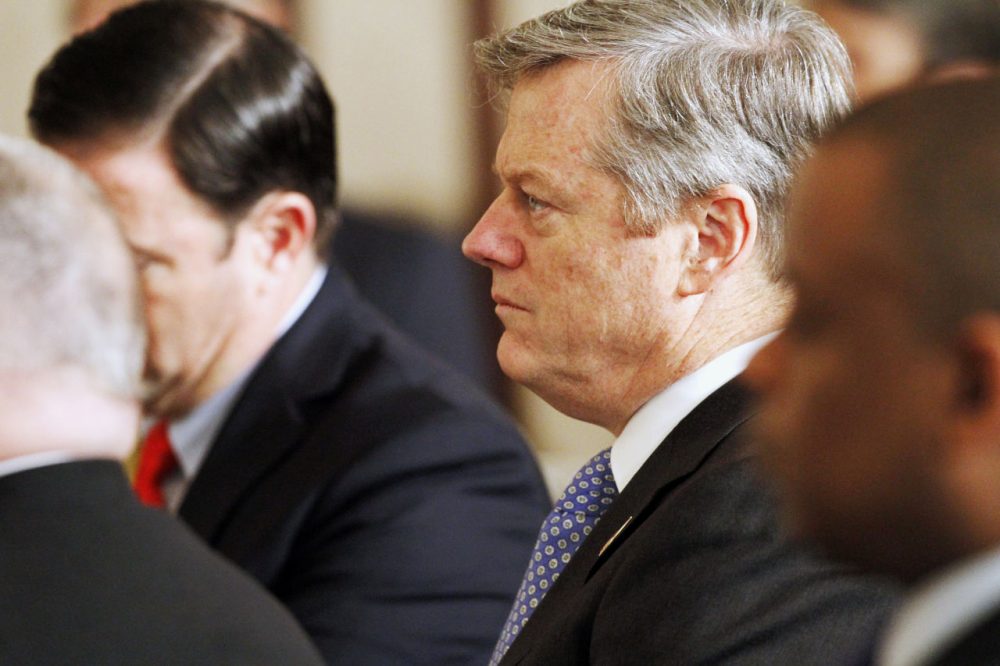Advertisement
Gov. Baker Appears To Be Growing Frustrated With Lack Of Movement On Opioid Bill

As the second month of the year draws to a close, Gov. Charlie Baker appears to be growing more frustrated with the Legislature's pace in passing his comprehensive opioid bill.
The legislation remains bottled up in a conference committee that's working out the differences between the House and Senate.
"I'm hopeful that we'll get something passed through the Legislature that we can sign and we can begin implementing ... when [legislators] come back in January," the governor said last November, after testifying in favor of his opioid bill. "If the clock's still ticking and nothing's happening in February or March, I'm going to start to get pretty impatient."
And there has been progress. Last month, the House passed its version of the legislation, which is slightly different than the one passed by the Senate last fall. The major difference is the number of opiate-based pills a doctor could prescribe to a first-time patient.
A major provision of the package, the part banning the involuntary commitment of female opiate users to the state women’s prison in Framingham, was busted out of the overall bill, approved in its own right, and signed into law by the governor. But with March just a few days away, the governor says he’s worried that other initiatives will be vying for attention on Beacon Hill.
"We have four people a day dying in the commonwealth," an increasingly frustrated Baker said Wednesday, after taking part in a State House event urging proper disposal of old medications. "We have legislation pending in a conference committee that everybody says they support, that everybody agrees would be a terrific set of tools to put in the toolbox to help us deal with the epidemic here in Massachusetts, and I'd like to see some action on that, yes. And I'd especially like to see it before, as I said, it gets lost in the sort of cacophony of the rest of the work that's going to be going on up here between now and July."
As for that conference committee, House Speaker Robert DeLeo says it met last Friday and made some headway, but couldn't say when work might be finished.
"My feeling is, I don't think there are any large, major [sticking] points," DeLeo said after emerging from a House caucus Wednesday. "I think there are a number of small points that I think they're just trying to address. But I can't say there's one major issue that's really holding up the bill. I think there's just a number of things we're trying to factor how we address them."
Advertisement
The opioid legislation is just one major piece of legislation still in conference.
Other bills being worked out include one that would revamp the state's public records law, a solar energy bill and a bill eliminating the automatic suspension of drivers' licenses of some offenders convicted of certain drug crimes.
Of course the major piece of legislation looming on the horizon is the state budget, which needs to be completed by July 1. The Legislature ends its session just 30 days later.
